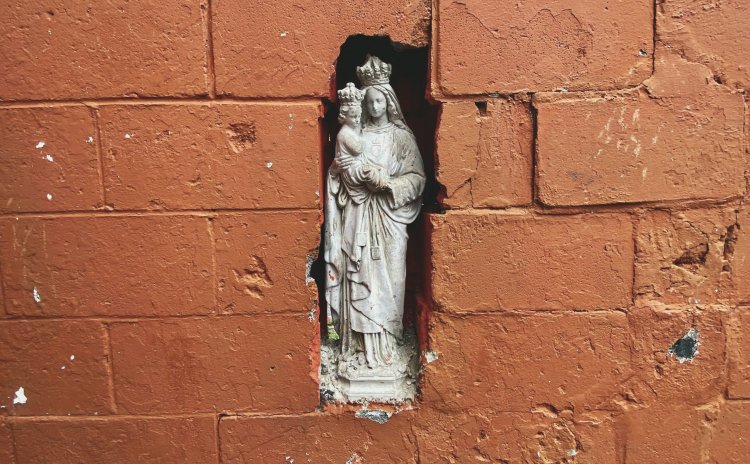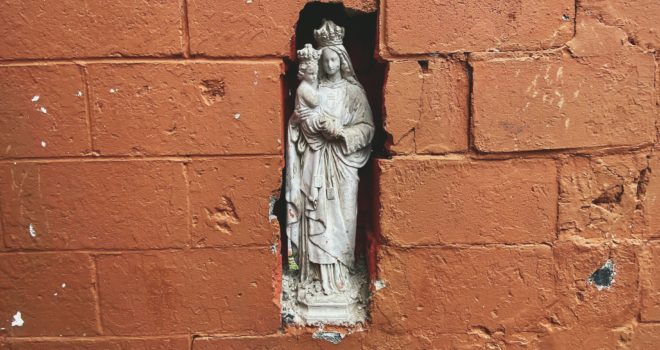The Refuge of the Remnant
A remnant is a fragment, the leftovers of something larger. It is a small parcel staggering behind the masses. It is what remains after disaster strikes. It is we, the people who cling to our hope that God is sovereign over everything, including our losses and the devastations destroying the moral fabric of our society. […]



A remnant is a fragment, the leftovers of something larger. It is a small parcel staggering behind the masses. It is what remains after disaster strikes. It is we, the people who cling to our hope that God is sovereign over everything, including our losses and the devastations destroying the moral fabric of our society.
Often, the concept of a remnant in Scripture leaves many cringing. It sounds too apocalyptic, too dismal about the end times. So many evangelical Christians decry the voice of worldliness to such an extreme that the message of doom and gloom leaves everyone feeling just as afraid as when we listen to secular news.
What is the antidote to this? What does it mean to be a remnant in the world without succumbing to fear?
If you feel like you are the remnant, it could mean two things. One, you might need to examine your sense of superiority: do you believe being among the “remnant” means that you are in some way entitled to particular benefits denied to others who don’t follow God the way you do? That’s often the way this concept is presented in Christianity. Consider the proclamation of the Jehovah’s Witnesses, that only 144,000 people will be saved. Do you, deep down, think that your devotions and lifestyle choices elevate you above the majority of people?
Another reason you might feel like the remnant is if you are experiencing loneliness. Jesus did say that the road to Heaven is narrow, and few enter it. Living as a Christian is arduous. If we ponder the path Jesus left for us to follow, it is riddled with thorns and brambles and rocks. We are not exempt from suffering; on the contrary, we are invited to enter into it.
Suffering with Jesus is a very isolating experience, because your cross is tailored for you, and you alone. I cannot live what you suffer. At the same time, finding others who understand what it is like to deny the whims of the world, especially its immorality, can be consoling. You find me, and I find you, as our paths converge. In that connection, what seems like you are left to fend for yourself as a Christian actually involves assisting each other to carry our crosses when the onus is far too cumbersome to do alone.
As Catholics, we are called to live in such a way that the rest of the world – even the rest of Christianity – often scoffs at us. We are rejected in conversations with friends who believe in God, maybe attend church on a weekly basis, but who see no wrong in contracepting or skipping service while on vacation. There is pain in the loneliness of knowing that you have chosen to life differently, basing your reasons on full understanding of human sexuality and the gift of our fertility. You love God and might rather sit on the beach, but because of your love for Him, you sacrifice an hour of your leisure to worship and receive Him.
Living as the remnant faithful leads you to a place you do not want to go. The goal is not self-martyrdom, which is actually false humility. It is not a Pharisaical wailing and stripping off your garments so that everyone around you can see how holy you are because of your fasting. This is not a sense of finding those who “know the truth” as you do.
What it means to be a remnant in God’s eyes is to quietly but devotedly love in small, simple ways. It is to be hidden among the populace. It means to be ridiculed without retort. It means to be crucified in many ways no one, except God, will ever know about or understand – in the mind, the heart, and the body.
When we learn to suffer well, to suffer with and in love, our interior dispositions necessarily change. We become Love. We have no need of widening our phylacteries. We don’t seek ways to display our myriad prayer cards, clink our rosaries, or converse about God incessantly. This is because we are conversing with God silently. We have learned to simply be with Him, be open to Him, and to respond to Him.
Living as the remnant will draw you to the very people you might now avoid: the homeless addict, the prostitute, the drag queen, the gay artist, the atheist or fallen-away Catholic, the cursing single mom. This is because God’s love is an expanse of mercy, and He is calling you to love the ones whose hearts might be most open to receive it.
✠
Photo by Jonathan Dick, OSFS on Unsplash














